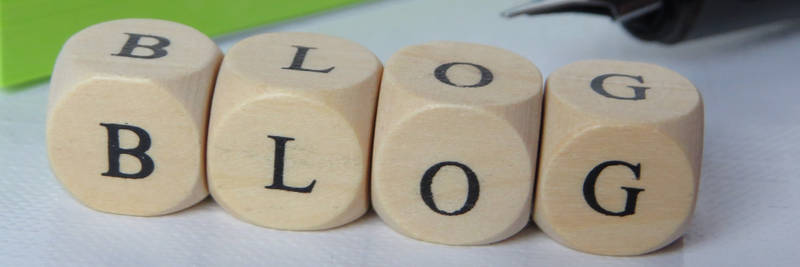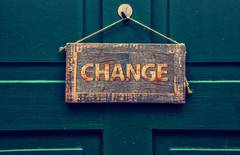Becoming Agents of Change through Compassion, Conviction, and Collaboration in 5781
09/10/2020 11:33:54 AM
Rabbi Jamie Arnold
| Author | |
| Date Added | |
| Automatically create summary | |
| Summary |

It is written that there is “nothing new under the sun” (Ecclesiastes). Both the Biblical and historical records remind us that this is not the first global pandemic with severe social and economic implications. We’ve known fear and grief. It the first time we’ve witnessed the social upheaval of a nation forced to confront injustices like systemic racism. We’ve known injustice and the anger. And it certainly isn’t our first rodeo as voters engaging in a contentious, high stakes election. We’ve known anxiety and we’ve ridden the emotional rollercoaster of discouragement and hope. The personal and collective challenges we face today surely do have precedence. Still, this year feels unprecedented, different, new, and often daunting.
I’ve noticed a shift in my own relationship to change this year. Typically, I head into the fall season looking for ways to make the Jewish New Year, well, new. This year, with so many disruptions to our routine and way of life, I’m drawn in the opposite direction. I find myself seeking consistency and stability, finding refuge in tradition.
Due to legitimate concerns about exacerbating the spread of COVID-19, which has already taken more than 175,000 American lives, many of us will not be able to attend High Holiday services in-person this year. And none of us will be able to gather in the ways and numbers that we have done in years past. Smiles and singing lips will be covered by masks and festive communal meals replaced by virtual social circles. Instead of excitedly cramming a few hundred chairs into the sanctuary to hear the shofar’s call, we’ll cautiously place a few dozen chairs outside (rain or shine), and another 25 safely socially distanced inside. The rest of us, safe at home, will tune in via Zoom.
That’s a lot of change. Perhaps too much for comfort. The Hebrew word for year, shanah, is related to the word for change, shinah. Same consonants, different vowels. Ironically, tradition defines this time as a season of change. It’s not that we are always afraid of change. It’s that we also want choice, agency. Many of the changes we’ve experienced in 2020 happened to us. The pandemic has forced upon us the humbling reminder that much of what happens in the world is not up to us; it is beyond our control. What we can do is choose our relationship to all these changes. And doing so makes us agents of change in both subtle and substantial ways.
In response to the changes that trigger fear and grief, anxiety and loneliness, I can choose compassion – honoring the pain I feel as a sign of my humanity and as seed of connection with you and everyone across the globe who experiences loneliness, loss, and grief. In addition to the virus-driven socially distanced reality, we’re witnessing social polarization driven by the politization of calls to address the killing of George Floyd and other people of color at the hands of law enforcement and the environmental crises, brought into sharp focus by the upcoming election. How do we respond to these changes? To help us clarify and connect through our convictions, CBE has [re]constituted a Tikun Olam Havurah. We encourage you to join this collective effort and will create an opportunity for that on Yom Kippur morning. Let us choose to act in accordance with our convictions – to stand up and lift our voices in support of worthy causes, cast our ballot, and heal ourselves and our word through collective engagement.
And in response to changes imposed upon how we welcome a Jewish New Year on Rosh Hashanah, seek collective atonement on Yom Kippur, and feast in joy on Sukkot, we can create new and lasting ways to connect, collaborate, commemorate, and celebrate – with outdoor services, out of state guests, outside-of-the box thinking, comforting melodies and words, and inspiring shofar blasts and silences.
As it turns out, we’ve inherited a tradition designed to enable and empower us, individually and collectively, as agents of change in the world. Drawing on centuries of accumulated poetry, melody, and histories highlighting our capacity for compassion, conviction, and collaboration, we can cultivate our capacities as agents of change for the better in this ever-changing world.
I am as eager as ever to see and celebrate this New Year with you. L’shanah Tovah Tikateivu – May you be written and sealed in the Book of Life for blessing in the New Year.
Sun, October 19 2025
27 Tishrei 5786
The midah of the month of October is Joy (simchah).
Useful Links
- Mi Sheberach Form (prayer list)
- Make a Donation
- Order a Yahrzeit Plaque
Friday Night
| Candle Lighting : 6:00pm |
Shabbat Day
| Havdalah : 6:58pm |
Upcoming Programs & Events
Oct 22 |
Oct 28 |
Nov 1 |
Nov 1 |
Nov 1 |
This week's Torah portion is Parshat Noach
| Shabbat, Oct 25 |
Candle Lighting
| Friday, Oct 24, 6:00pm |
Havdalah
| Motzei Shabbat, Oct 25, 6:58pm |
Rosh Chodesh Cheshvan
| Wednesday, Oct 22 |



